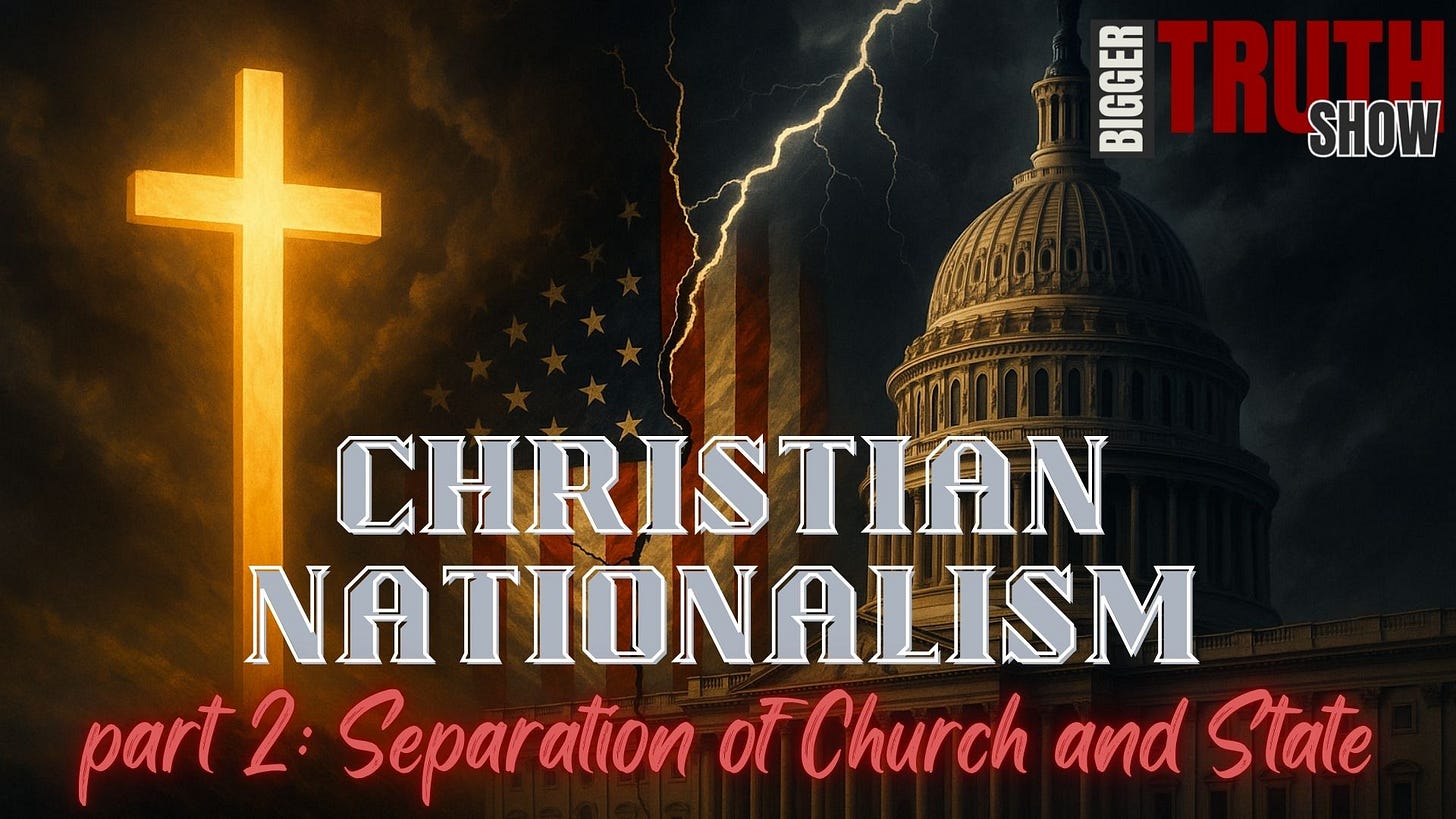The False Gods of Power: What Both Sides Get Wrong About Church and State
How both the secular left and the Christian right are using the same false dichotomy to keep us divided, distracted, and disarmed.
In part one of this series, I defined Christian Nationalism as a very real movement manipulating churches and Christians in ways few recognize—a movement that is neither truly Christian nor constitutional.
As this series unfolds—beginning especially with part three—I will show how this movement can be traced back to the early intelligence era, including …




